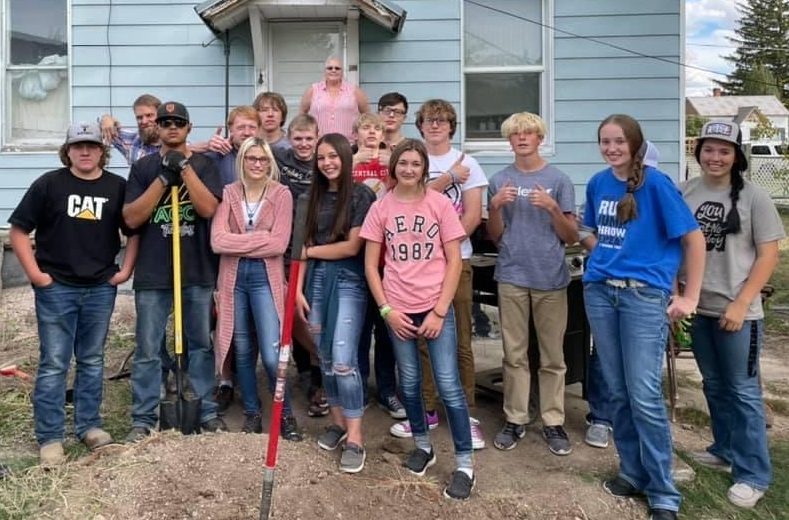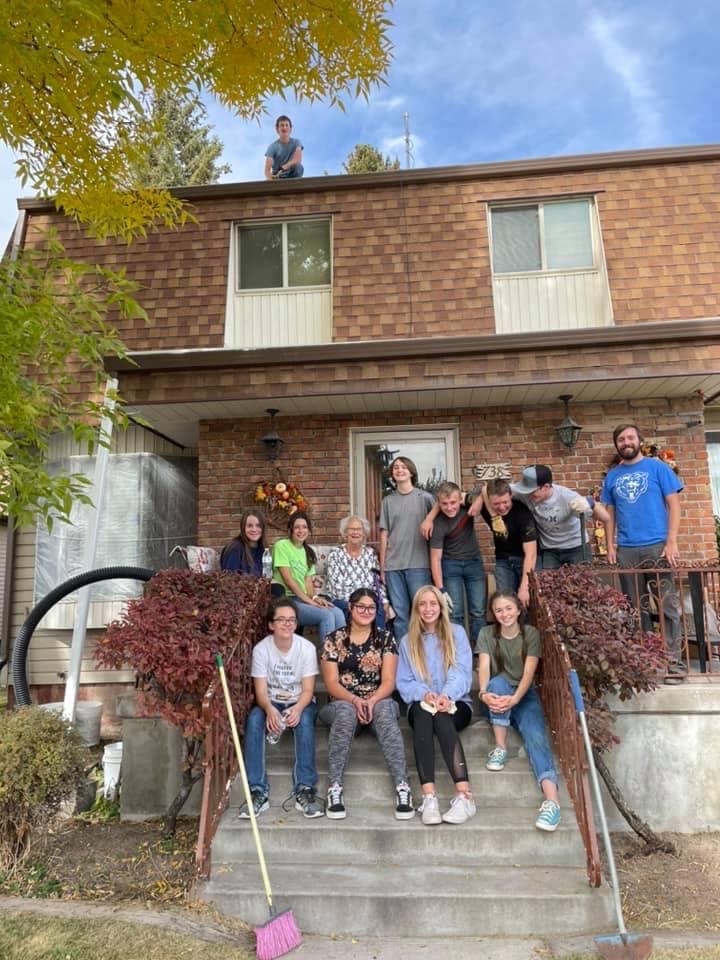
Bear Lake High School English teacher Tabetha Bissegger sees the school’s advisory period as much more than time to help kids with their homework.
“It’s different,” she said.
Social studies teacher Paul Kucharek took it a step further: “It’s family.”
The advisory class that ends the school day allows students at the Montpelier-based school, surrounded by timber country and farms, to step back from their coursework, plan, set goals and get tutored — and maybe do some tutoring.
It’s reflection, planning and learning time to help them navigate a school-wide mastery-based learning program. But the heart of advisory — what the school’s students and leaders say makes it so much more — is its emphasis on mentoring.
Teachers mentoring students. Students mentoring students.
It’s been key to helping students get to know and trust their educators and peers, which has been a lifeline for several local teens during the pandemic, said principal Luke Kelsey.
“It’s providence, really,” Kelsey said of the school’s implementation of the program through Summit Learning, prior to the social challenges of COVID-19.
Students spend their last period of the day in their 65-minute advisory class made up of 18-25 teens and a mentor teacher. Classes are a mix of learners from all high school grade levels who stay together for all four years — a tactic designed to help them get to know their teacher and each other, and to get comfortable teaching and learning together.
That’s been a big perk for freshman Giuli Saxton, who’s grappled with geometry during her first year of high school. A senior who passed the class and moved on to trigonometry has become an advisory-period friend, and pro-bono tutor.
“It’s helped so much,” said Saxton, adding that its nice to have someone aside from your math teacher help.
Devoting more than an hour to the class lets students plan and set goals through Summit’s mastery-based online platform, which includes a calendar and their progress on assignments and tests from all of their classes. Their advisory teacher can view their progress and set regular and random checkins.
Mastery-based learning requires students to meet certain scoring thresholds in order to advance. No As Bs or Cs. Students progress at their own pace. Bear Lake’s mastery model means scoring at least 80% on assigned tests and projects.
Missing assignments and low scores are flagged for students to do them again. Advisory provides plenty of time to self reflect and work with other students and teachers to improve.
Senior Elise Kelsey reflected on four years in math teacher Tarl Vickers’ advisory class. As a freshman, his “big, bushy” beard was scary. But getting to know him over the years helped her warm up, and rely on him for help with schoolwork and life challenges.
“It’s nice to have someone to talk to who’s not a relative,” she said, adding that Vickers has been a huge help with issues beyond school, from sports to friends.
It’s a way to vent, step back and look at the bigger picture, she said.
Today, Mr. Vicker isn’t scary at all, Elise Kelsey said, smiling at how he calls the group of advisory students his “tots” and how they call him “Mom.”
“Unlikely” relationships have popped up between students too, said Luke Kelsey, referencing several friendships between kids with vastly different backgrounds and interests.
“Many of them wouldn’t be friends if it wasn’t for (advisory),” Kelsey said.
Junior Josh Walker moved to the school last year from South Carolina. He said advisory was a big help adjusting socially, and its emphasis on service projects made things easier.
Each year, advisory classes descend on the town, raking leaves for widows, cleaning up a local park and more.

Walker recalled “piling” into his car with fellow advisory students earlier this school year and listening to music on the way to a service project.
Cameron Crain, the 300-student school’s counselor, said simple social interactions like these might not seem big, but they can be huge. “It’s just a great thing for so many.”
Crain also touted increased interactions between students and teachers. Since the program started four years ago, he’s seen a “major decline” in the number of students who end up in his office with serious mental health issues. Teachers helping students through more minor issues has been a big part.
And that deepens connections at the school in “so many ways,” Bissegger said. “The classes really do feel like family for many of us.”
